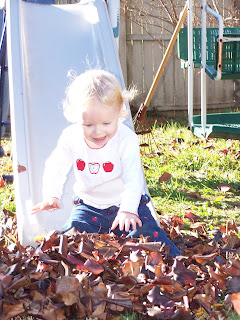So last week our dishwasher died. Pretty good timing actually, since for the week we didn’t have one either we had already planned on eating out or only I was in residence. We finally go pick one up, install it, and promptly go back to our usual couple of loads a day pace.
And we are left with a box. A gigantic, pack-up-the-whole-family-and-ship-us-to-Texas size box.
So Joyce and Marie start brainstorming what to do with it. And the negotiations begin:
Joyce: “I want it to be a tent, to camp out in.”
Marie: “I want it to be a house, with windows and a chimney.”
They agree with surprising speed that they will put the box down sideways (so it will be a tent with doors), paint it, and draw windows on it instead of cutting them out. Next, we cover the outside of the box with a roll of white paper, and bring out the painting supplies. But before they paint, they argue for at least 10 minutes about what to decorate the house with. They finally agree to divide up the sides of the box and draw on different ones.
Joyce: “I’m drawing windows on my side.”
Marie: “I’m drawing windows on mine too.”
Marie then walks around to observe Joyce’s progress, “Joyce! You didn’t draw your windows right, they don’t look like mine!” And she promptly fixes what she perceives to be the error…
Joyce: “Marie! Don’t draw on my windows! I don’t want them to look like yours, I don’t like how yours look!” Joyce promptly grabs an eraser and tries to undo Marie’s “help,” while complaining loudly that Marie needs to stop drawing on Joyce’s side. Marie is just bewildered why anyone wouldn’t want her to help make things conform to her picture of perfection.
And the painting finally commences. They agree on a color each (different of course), receive their brushes, and begin, all the while commenting on how their side is going to look the prettiest.
Marie peeks at Joyce’s side again.
Marie: “Joyce! You painted over your windows! Why did you do that? That isn’t right. Look at mine, don’t they look better?”
Joyce, in a very annoyed tone of voice: “No. I like mine better.”
So they finally finish painting their respective sides, and impatiently stand there and fidget while watching the paint dry. All the while discussing how and why each one’s work is superior.
Their plan is to sleep in the box, so they drag pillows and blankets downstairs and arrange everything. Before we leave for a lovely evening of adult conversation, I inform their babysitter of their plans, and fully expect to come home and have to carry 40-50 lbs of limp sleeping child upstairs to their bunk beds. But, upon arriving home before I turn into a pumpkin, she informs me that they both decided to sleep in their beds because the house was too spooky (and I’m sure the hard floor had something to do with it too).
At least they finally agreed on something.






